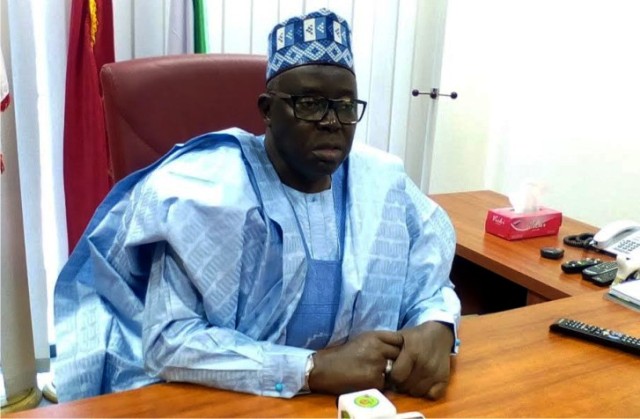Opinion
Towards Ensuring Transparency In Governance

The Chairman Senate Committee on States and Local Government Administration, Senator Abdullahi Gumel, recently briefed newsmen on the readiness of his committee to extend its bailout funds probe to states that accessed the funds from the Federal Government in 2015.
He said the investigation was prompted by allegations that some states that accessed the funds diverted them to other uses leaving a backlog of salary arrears yet unpaid.
Recall that an analysis recently carried out by the Independent Corrupt Practices and other related offenses Commission (ICPC) in conjunction with the Nigeria Labour Congress(NLC), revealed that most of the states that received the N338b bailout funds diverted the money to other uses.
A breakdown showed that some of the states that claimed to owe their workers salaries lied while others failed to pay workers and diverted the money to other uses. A state like Osun which is owing workers backlog of salary arrears was reported to have received N34.988.990.000 as bailout fund and disbursed N18.677.224.582.20, leaving a balance of N16.311,765.418 billion as at November 2015. There are allegations that Osun state public servants are still being owed backlog of salary arrears.
Going by this, it will seem reasonable for questions to be asked on how the funds were utilized. These monies were given to the states to pay salaries and gratuities of workers and cushion the effects of the biting economic difficulties faced by the nation. So, there is no logical reason why that shouldn’t be paid.
But the questions remain, who has the right to ask such questions? Does the National Assembly has the power, constitutionally to carry out oversight functions on the states? What becomes of the state assemblies if the National Assembly should extend its oversight functions to states?
In a bid to justify his committee’s action Gumel posited that though state assemblies have oversight powers over the states , the assignment of the committee was based on funds given to the states by the Federal Government , insisting that the Senate has the power to investigate the bail out because the money belongs to the Federal Government .
However, many may disagree with Gumel’s argument, owing to the fact that the money had already been given to the states. Moreover, ours is a federal system of government where powers are shared between the center and the component units. So the Senate carrying out this investigation could be seen as a huge interference in the activities of the states which may not hinder a smooth relationship between the states and the National Assembly. As it is usually said, something worth doing , is worth doing well.
That said, one wants to believe that the Senate decided to carry out the investigation due to the inefficiency of the state houses of assembly. Many state lawmakers are what some people call “governors’ boys”, so they cannot stand up to the governors to demand for explanations for any of their actions. Some of them lack the knowledge of what law making is all about. That is why when you hear of some obnoxious laws made by some state assemblies you begin to wonder what crop of people are in those houses.
Not too long ago, we heard how Edo State Assembly approved the construction of N200m for ex-governors and N100m for ex- deputy governor. Of course Edo Assembly was just towing the line of their counterparts in other states which had earlier approved such humongous amounts as retirement benefits for ex-governors and their deputies.
So, the inability of the lawmakers both at the federal and state levels to live up to their responsibilities is the major problem we have in this country. The leaders do whatever they like and get away with it because the people whose constitutional responsibility it is to checkmate their excesses look the other way.
So, it is high time our lawmakers woke up to their responsibilities if we must have transparent government in the country. But he who goes to equity must do so with clean hands. So, it will be absurd if lawmakers both at the federal and state levels think of cleansing the executive arm of government when their chambers are filled with dirt.
In every budget, projects are being provided to be carried out by the lawmakers as constituency projects and all that. Can they make it public how much they spend on these projects?
Let our governors too show they are responsible by letting the people know how they spend the state money. They shouldn’t wait for a Senate committee to come for an investigation before they sincerely make it known the sources of the states income and how the monies were used.
It is painful that in this 21st century when the people demand greater responsibilities from politicians, this is what we get from them. But the citizens must not sit down and watch things getting worst. We need to begin to hold our leaders responsible. We must begin to ask questions, using all constitutional means and demand that the right things be done for our own good and that of the future generations.
Calista Ezeaku
Opinion
NDDC: Time To Illuminate Homes

Opinion
When Democracy Becomes Too Expensive

Opinion
Righteous Leadership Still Thrives

-
Politics3 days ago
2027: NIGERIANS FAULT INEC ON DIGITAL MEMBERSHIP REGISTER DIRECTIVE
-

 Environment3 days ago
Environment3 days agoLAWMA Director Says Sweeping Reforms Have Improved Waste Collection
-
Politics3 days ago
LP Crisis: Ex-NWC Member Dumps Dumps Abure Faction
-

 Politics3 days ago
Politics3 days agoUmahi Dismisses Allegations On Social Media, Insists On Projects Delivery
-

 Sports3 days ago
Sports3 days agoAbia Not Sure To Secure continental Ticket
-
Politics3 days ago
NATASHA ELECTRIC VEHICLES INITIATIVE IN KOGI CENTRAL
-
Sports3 days ago
La Liga: Yamal Records First Career Hat-trick
-
Politics3 days ago
IT’S A LIE, G-5 GOVS DIDN’T WIN ELECTION FOR TINUBU – SOWUNMI

